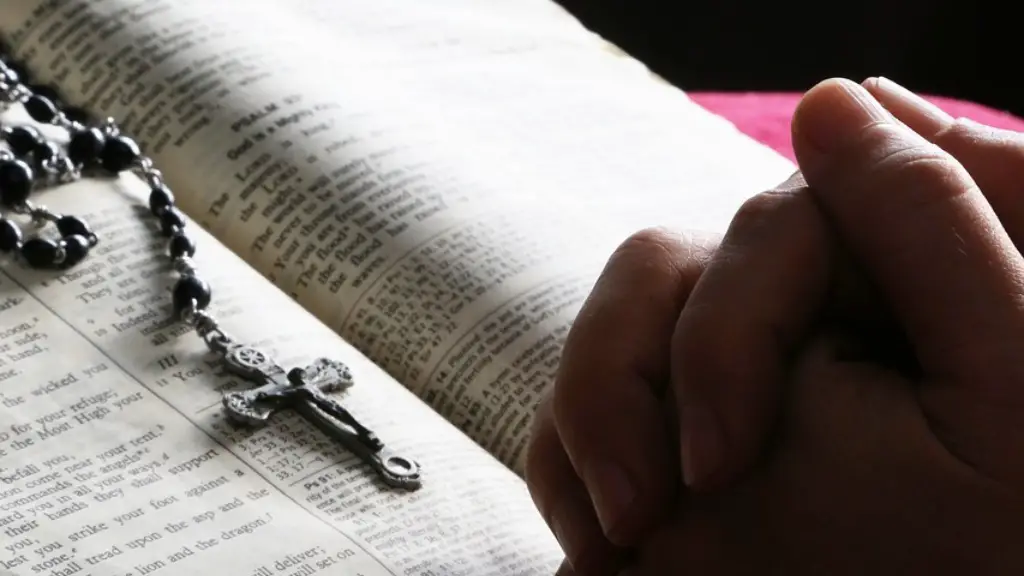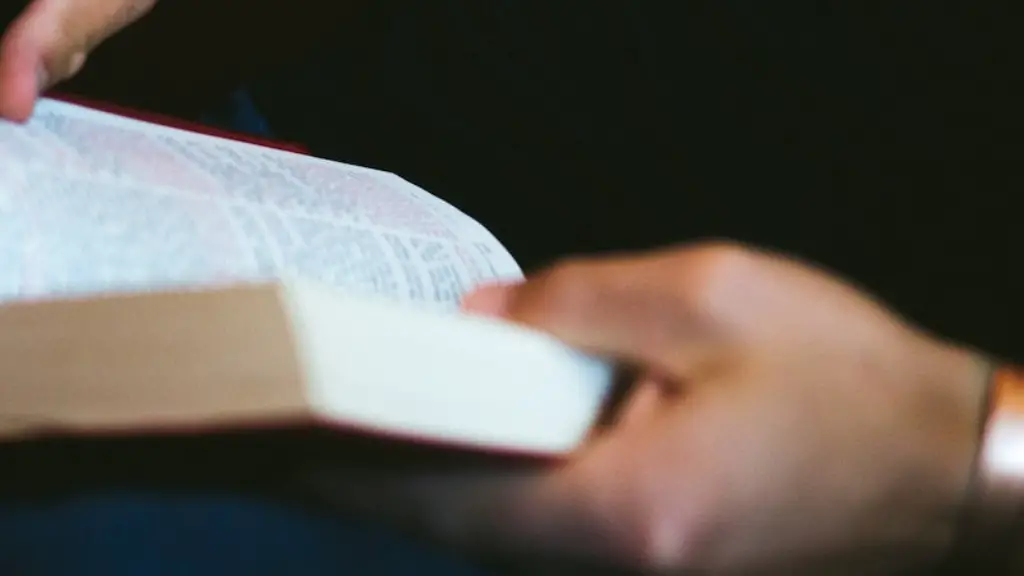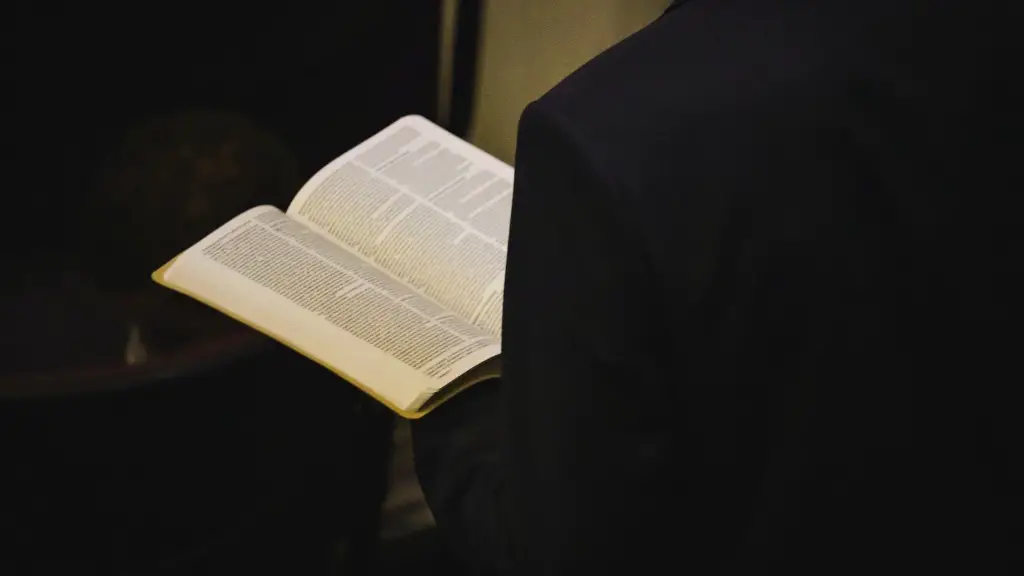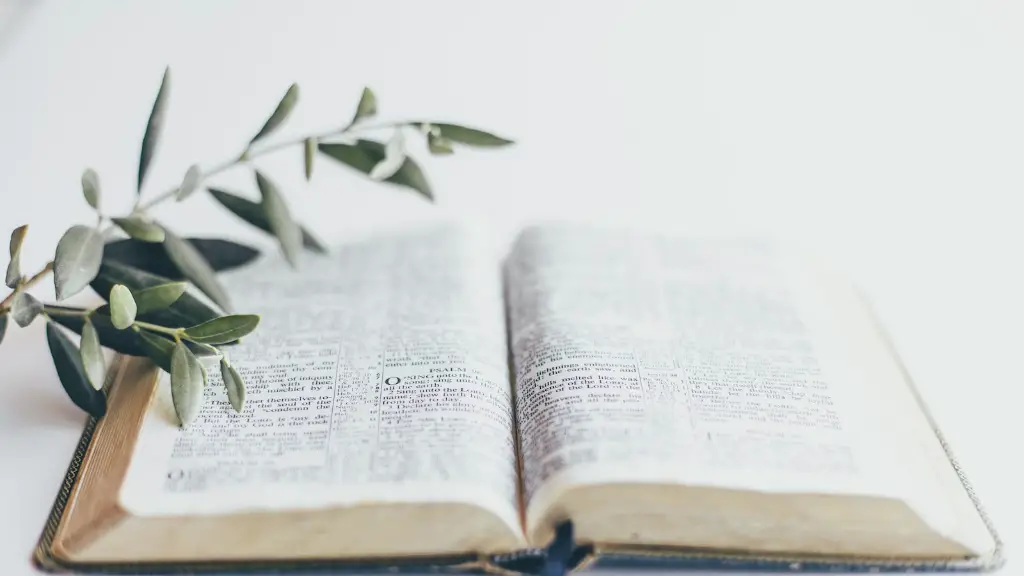Leah is one of the prominent figures of the Bible, being the first of Jacob’s four wives and mother of six of the twelve tribes of Israel. Leah was the eldest daughter of Laban, who tricked Jacob into marrying her instead of her younger sister Rachel, whom Jacob considered his true love. Leah was then forced to become Jacob’s wife, a circumstance that has been used to explain the traditional role of husbands in marriage.
In the Bible, Leah’s character appears as a woman of deep faith and humility. She acknowledges her barrenness and gives thanks for every son she has despite her husband’s obvious preference for Rachel. Leah is also praised for her commitment to keeping the faith while Rachel is seen as the lost sinner who was eventually won back through her own acts of piety.
One of the most interesting aspects of Leah’s character is her role as the “mother of Israel”. The nation of Israel came into being through her many descendents and her actions, along with Jacob’s, to establish a unified society based on their common religious beliefs. This legacy as the “mother of Israel” was also shaped by her strength in the face of oppression and her ability to raise children who were not favored by her husband.
Moreover, Leah is often seen as a symbol of strong motherly love and a reminder that there is hope for anyone who is in an unfavorable situation. She is a reminder of the importance of having faith and being patient in the face of challenges. Despite being faced with her husband’s preference for her sister and her barrenness, Leah persevered and eventually raised six strong, successful sons.
By studying the biblical narrative surrounding Leah, we can gain important insights into the role of women in ancient times and the place of children in a patriarchal society. We can also gain an appreciation of her strength and her refusal to be victimised by her circumstances. She serves as an important reminder of the power of faith and the fact that it can still be found in even the most unlikely of places.
Reception of Leah in Jewish Culture
Leah has a prominent place in Judaism, with rabbinic literature often drawing positive lessons from her life. She is associated with the Sabbath and specifically with kindness, mercy and understanding. Leah is often seen as a maternal figure in Judaism, with her name being used to refer to mothers in certain prayers. Her role as the mother of Israel is also cited as a reason for why both men and women should serve God with their unique strengths.
Furthermore, some Jewish traditions also use Leah and her children to symbolise the struggle between good and evil. Her sons represent the path of righteousness, while her daughter Dinah serves as a symbol of evil and sin. By telling the story of her children, the Bible serves as a reminder of the importance of choosing the path of righteousness and being faithful to God.
Despite the many positive aspects of Leah’s character, some people still criticise her, citing her role in the deception of Jacob and her infertility as reasons to see her in a negative light. However, the overall message of Leah’s character is still one of faith, patience and perseverance in the face of adversity.
Leah and Biblical Allegory
Leah is a popular figure of biblical allegory, particularly in Christianity where she is often cited as a model of devotion and faithfulness. In the New Testament, she is seen as an example of hope for those who are in difficult circumstances and of God’s grace and power to transform lives. Her story is also frequently compared to that of the Virgin Mary, and she is cited as a model of strength and determination for women.
In addition, Leah is often used as a symbol for hope in the face of suffering and patience in the face of trials. Her story can serve as an inspiration for anyone who is dealing with a difficult situation and needs strength to persevere. Despite the difficulties she faced in her life, Leah showed tremendous faith and fortitude in the face of adversity and continues to be a source of strength and inspiration to this day.
Leah’s Significance in Modern Times
Leah continues to hold an important place in modern culture and the modern feminist movement. As a female figure who was able to overcome difficult circumstances and remain faithful to her beliefs, she continues to be seen as a powerful example of resilience, faith and perseverance. Her story continues to resonate with many people today who are dealing with difficult circumstances, and she is often seen as a source of comfort and hope.
Furthermore, Leah’s story is often used to illustrate the importance of motherhood and the matriarchal role in society. Her ability to raise six sons who formed the twelve Tribes of Israel is viewed as an example of the power of a mother’s love and impact on her children and on society. Her story serves as an important reminder of the invaluable role that mothers can play in shaping the world.
Leah’s Legacy
Leah’s legacy is one that has stood the test of time and continues to inspire many people today. Despite being in an unforgiving patriarchal society and dealing with an unfavourable marital relationship, Leah was able to remain faithfully devoted to her beliefs and to her family. Her story serves as an important reminder of the power of faith and hope in the face of adversity.
Leah’s influence on the Bible and her strong presence in Judaism show that she remains an important figure in modern culture. She stands as an example of courage and perseverance and continues to be an inspiration for many people around the world.
Final Thoughts on Leah
Leah is a powerful figure in the Bible, and her story can be used to illustrate a variety of key themes. Her role as the mother of Israel and her resilience in the face of adversity make her a beloved figure in modern culture. Her example of faith and fortitude continue to inspire many people and serve as a reminder that difficult circumstances can still be overcome with faith and perseverance.



